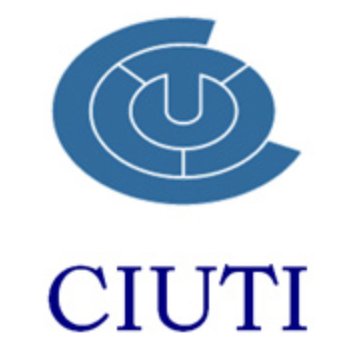
Together with Translating and Interpreting academics, trainers and educators, professionals and industry representatives, Bridging Translation is participating in CIUTI conference in order to gain innovative ideas on how to strengthen the interface between research and practice in the field of translation and interpreting studies.
Established in 1960, CIUTI is the world’s primeval and most renowned international association of university institutes with translation and interpretation programs.
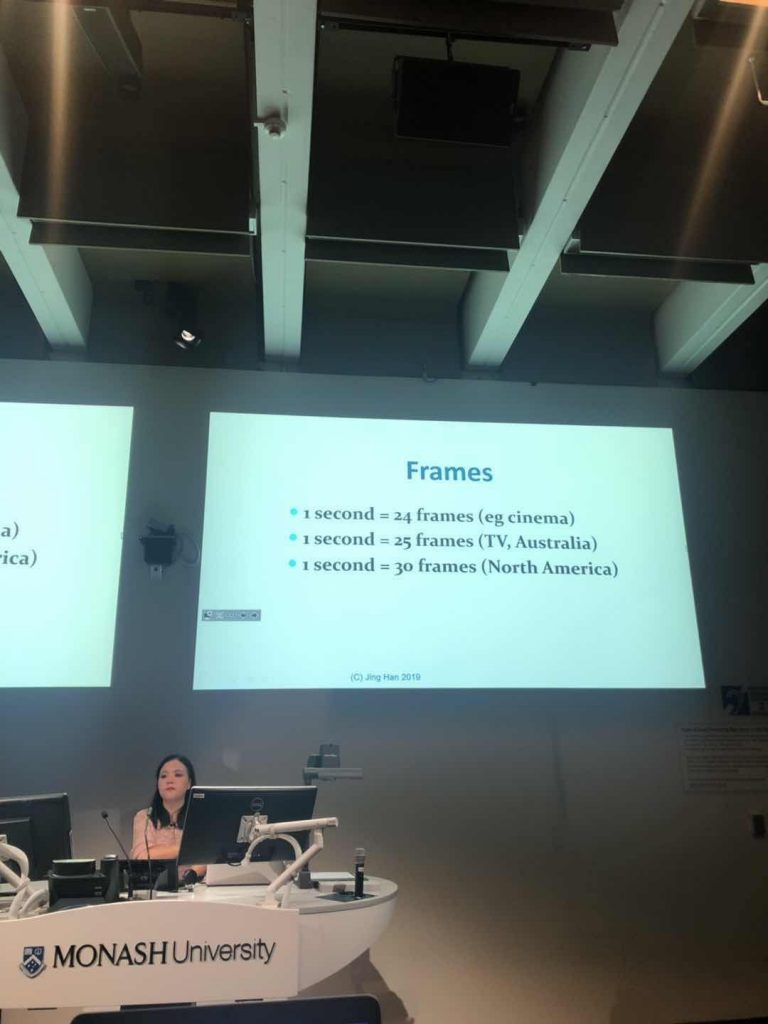
Professor Jing and Jan-Louis shared their insights on subtitling and media accessibility –
Subtitling is a specialised form of translation which highlights and heightens the challenges in translation and renders the original speech into a reading format in the target language on the screen.
The flow of subtitles means the temporal succession of subtitles on the screen. The viewer cannot go back to the previous subtitle while watching a film.
It invoices an audio-visual medium and a literary medium all at once.
It is characterised by the contemporaneous presence of the source material and target text.
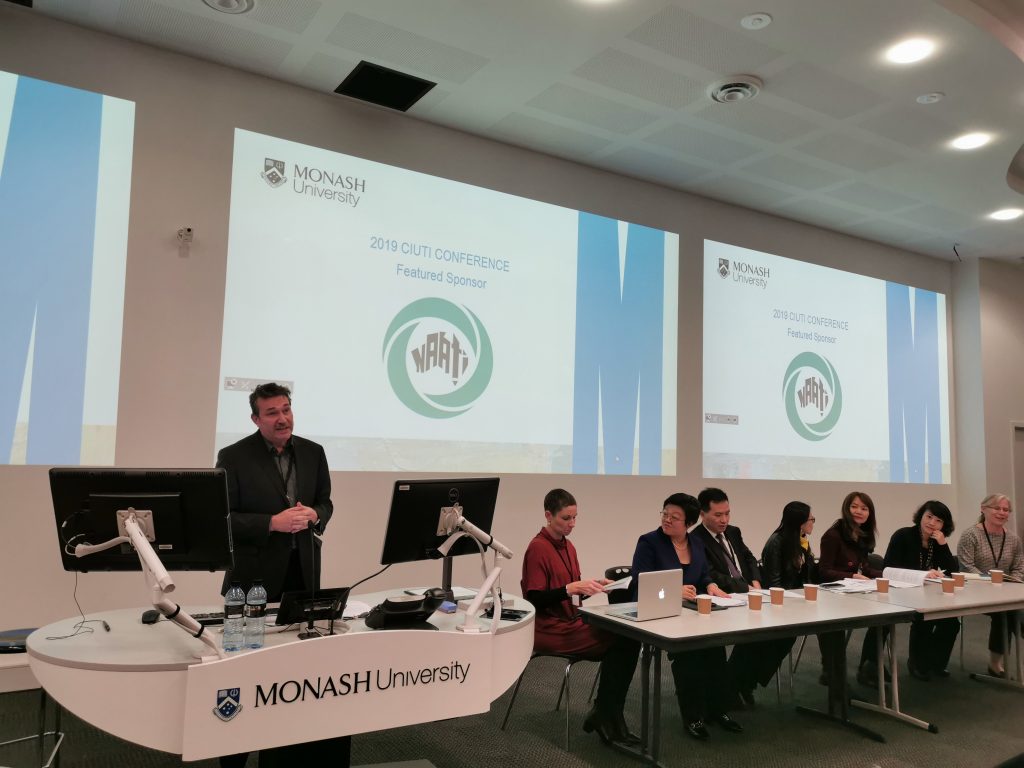
Marc Orlando
At 17:15, professor Marc Parlange and Marc Orlando from Monash University introduced the panel and discussed T & I in Asia Pacific Region: Status and Trends.
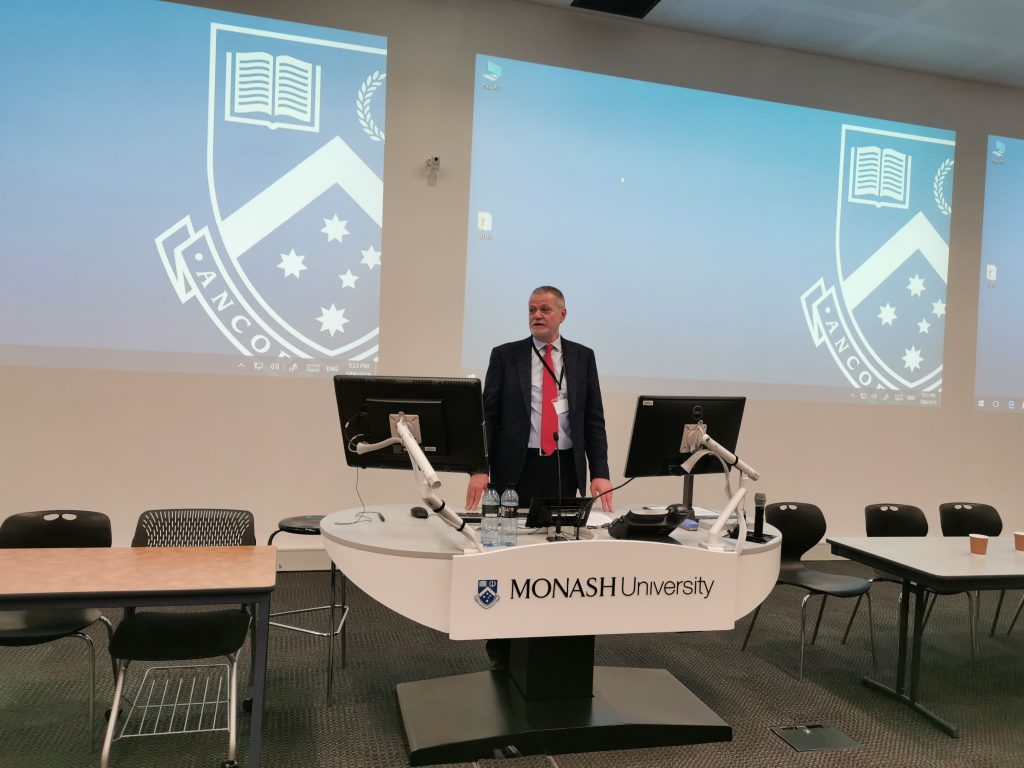
CIUTI President announced the lunch of CIUTI conference.
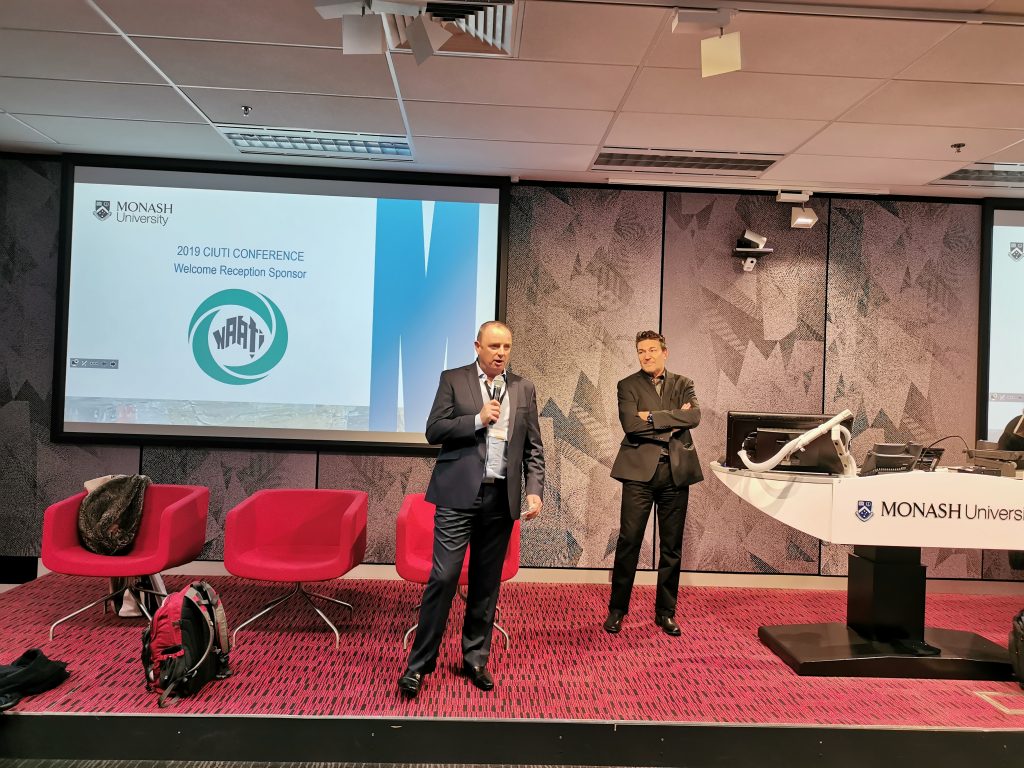
CEO of NAATI addressed a short speech at reception.
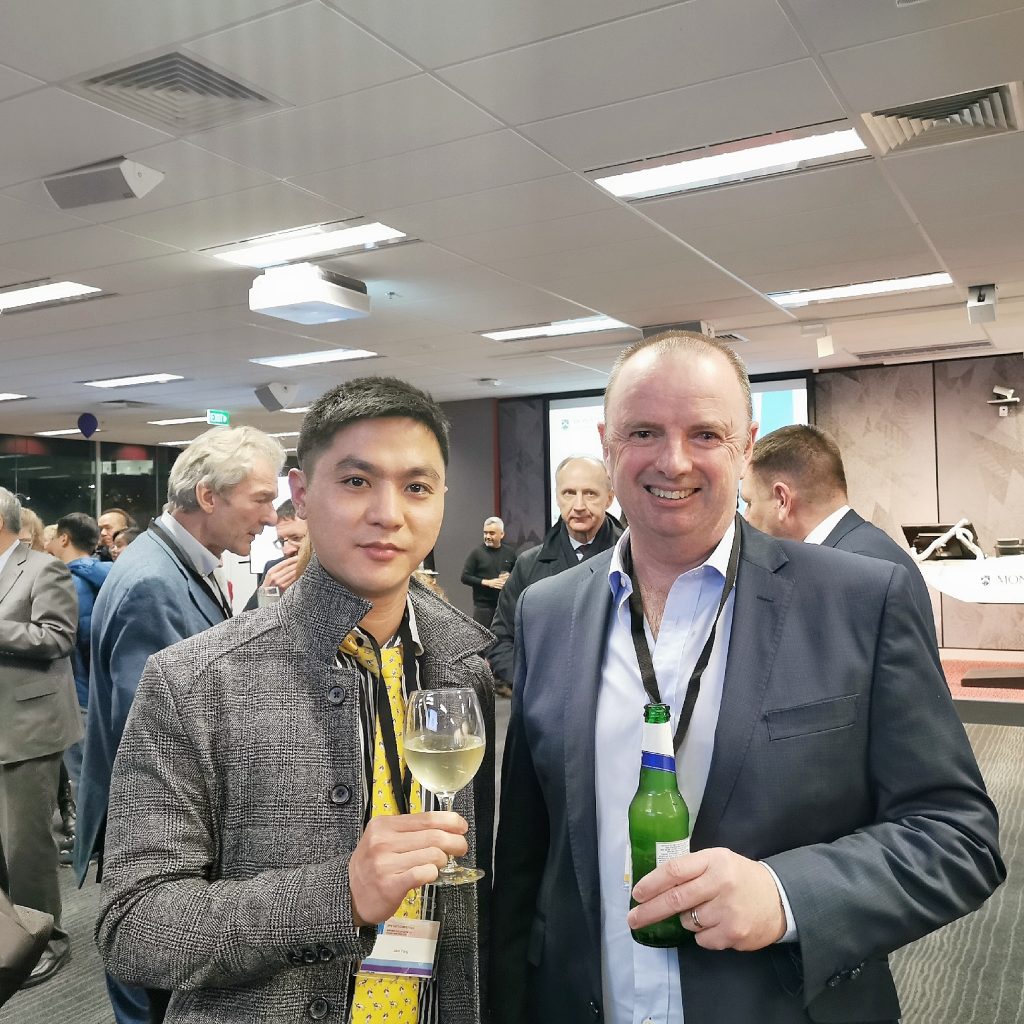
Jack Yang, CEO of Bridging Translation having a chat with Mark regarding the reform of test and re-validation system of professional translators and interpreters in Australia.
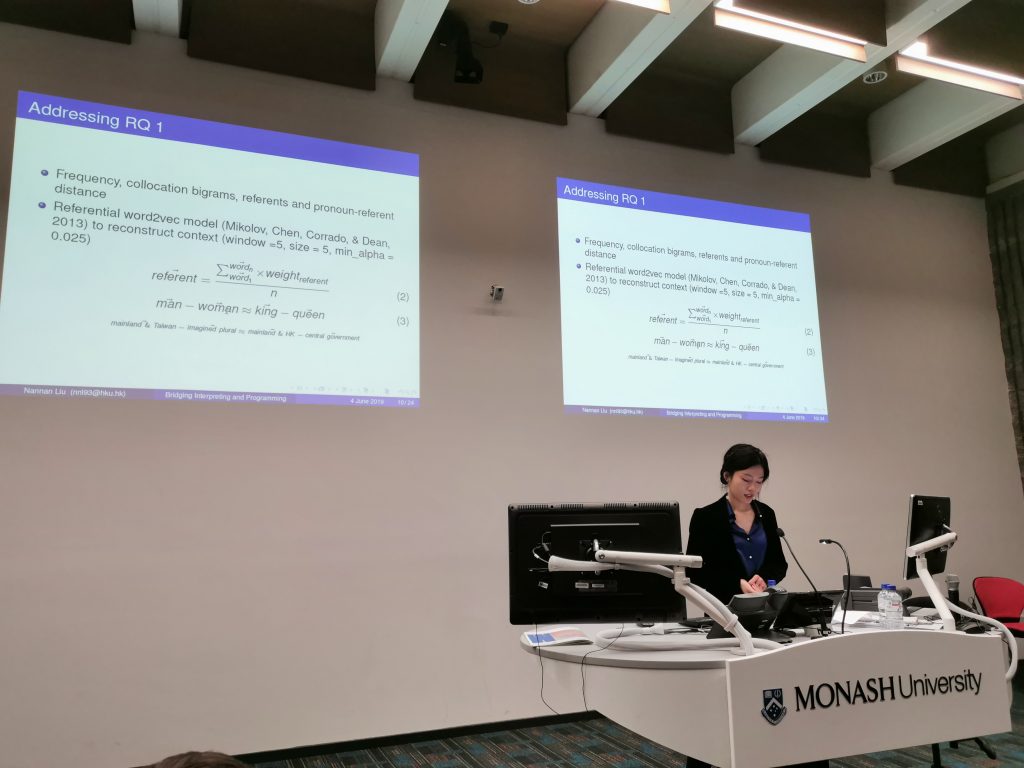
On 4/6/2019, Nannan Liu presented on the topic Bridging Interpreting and Programming: Using Python to Build and Investigate Diachronic Interpreting Corpora.
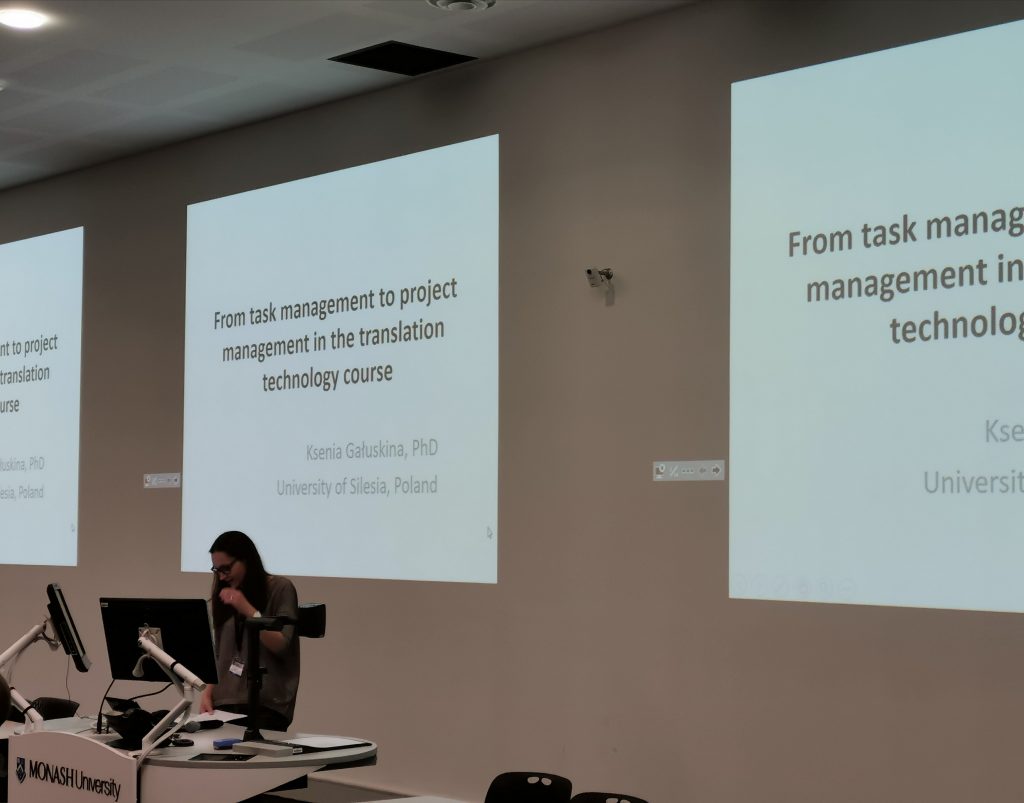
Dr. Ksenia Galuskina talking about From Task Management to Project Management in the Translation Technology Course.
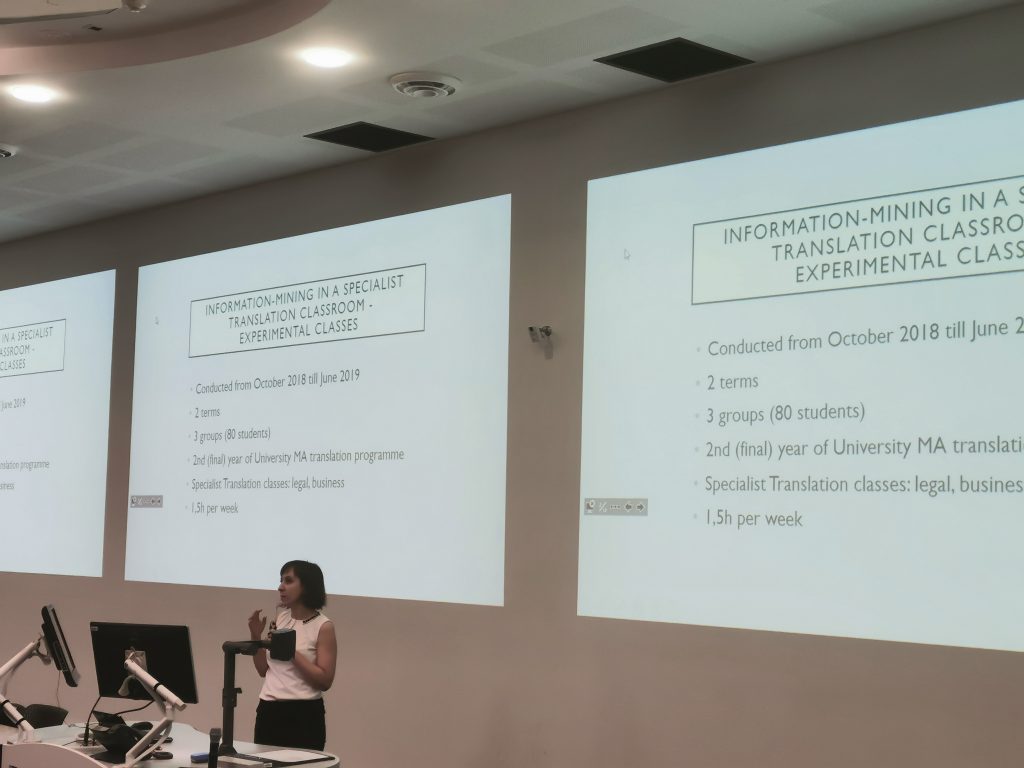
At 10 am, Information-mining in a Specialist Translation Classroom:Results of the Experimental Classes.
Stage one – presentation of the sources and testing the sources
Stage two – the students experiment with sources during translation assignments
Stage three – aim: from effective information-seeking habits, not to go back to the old habits
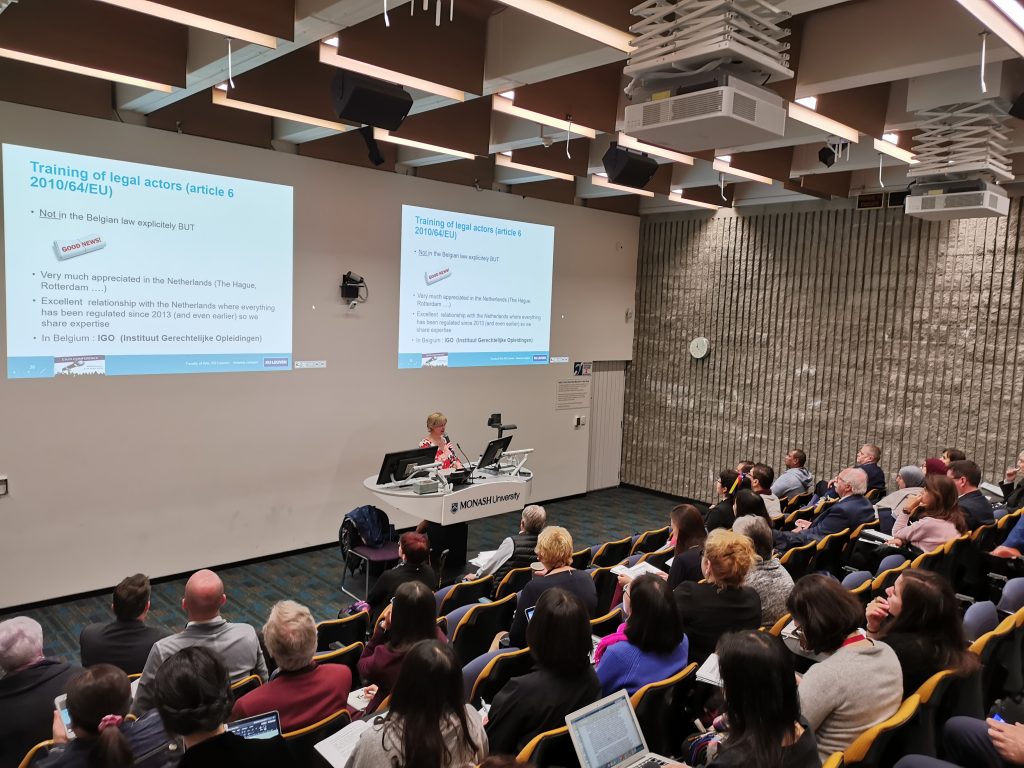
Certification of Sworn Legal Interpreters in Europe: the Implementation of the 2010/64/EU Directive. Belgium as a Case.
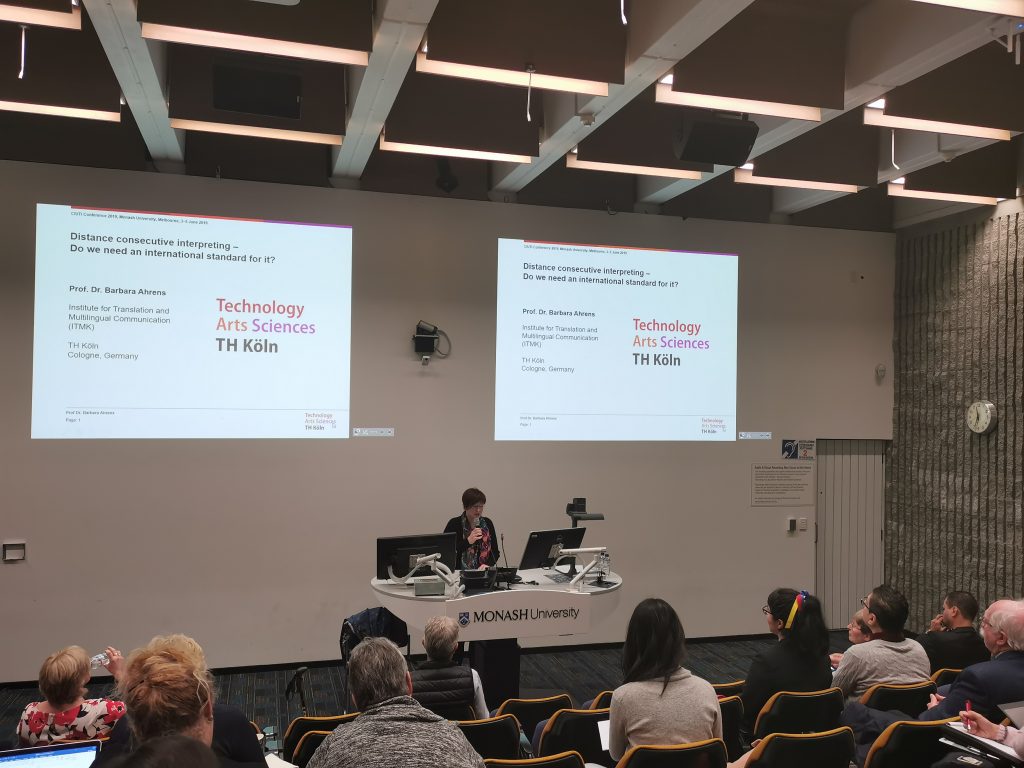
Distance Consecutive Interpreting – Do We Need an International Standard for It? It is not uncommon that a lot of large agencies in Australia do not give any background information for their interpreters to prepare for their assignments.
Standards can be an useful tool for enhancing quality of interpreting services because they introduce the best practice.
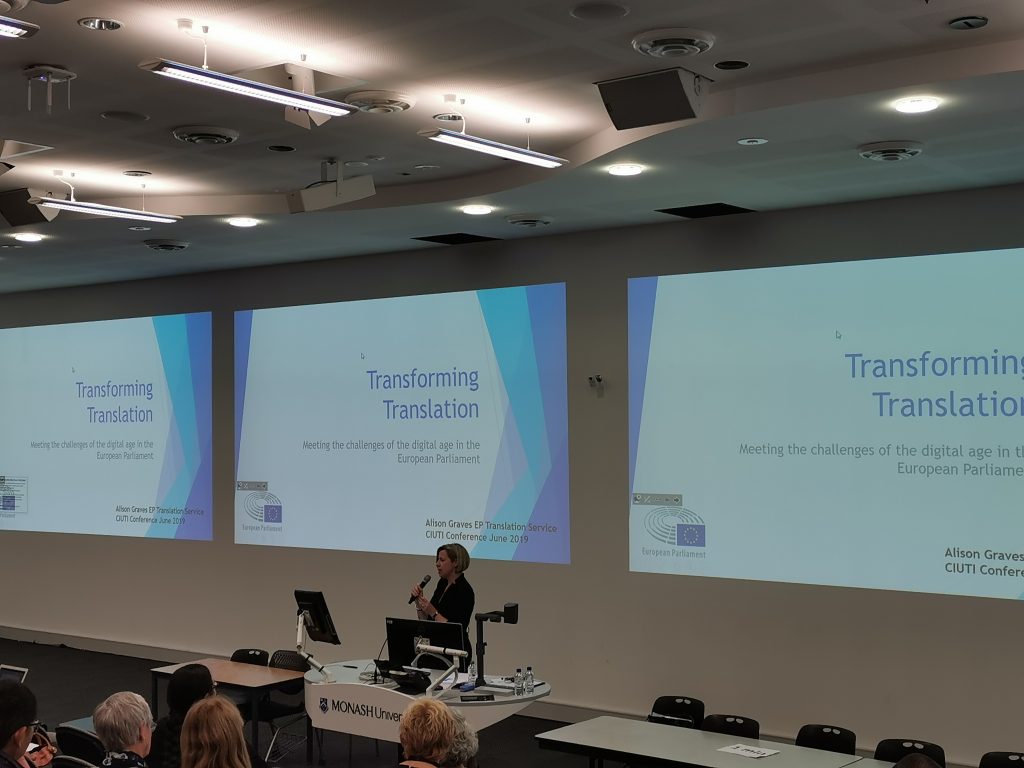
Transforming Translation: Meeting the Challenges of the Digital Age in the European Parliament.
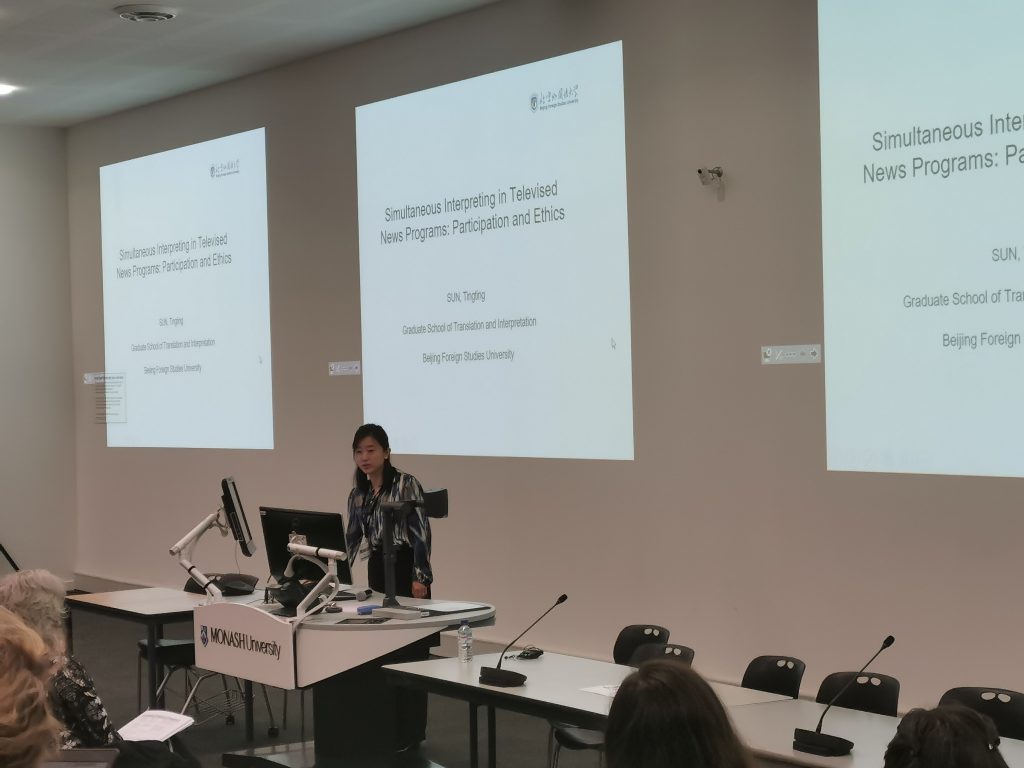
Simultaneous Interpreting in Televised (Breaking) News Programs from the Perspective of Social Narrative and Ethics.
Live interpreting is a special domain of interpreting and have received increasing attention since 1980s.
Live media interpreting can be a very high-risk occupation.

Interpreting Persuasion: Critical Discourse Analysis in Interpreter Training
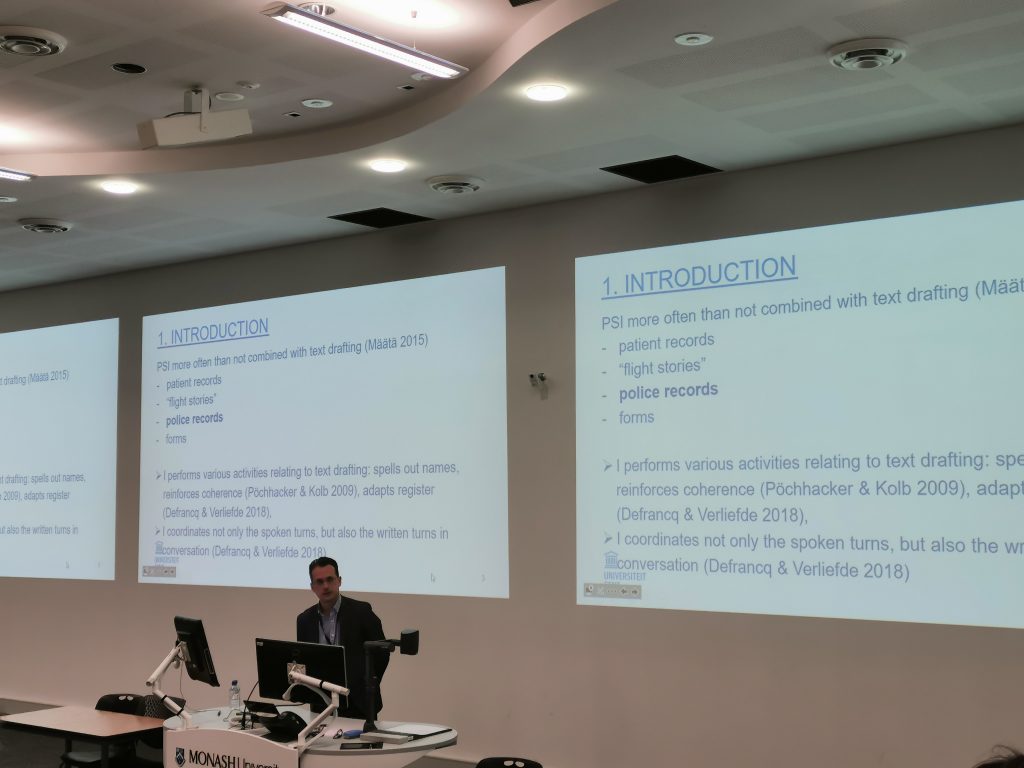
Precise Enough? Interpreters’ Disambiguation of Unclear References for the Benefit of the Written Record
As an interpreter in Belgium, how to help police in their interviews to achieve what they want?
In Belgium, Written record usually typed out during the interview. Interviewees has the right as to what to be recorded.
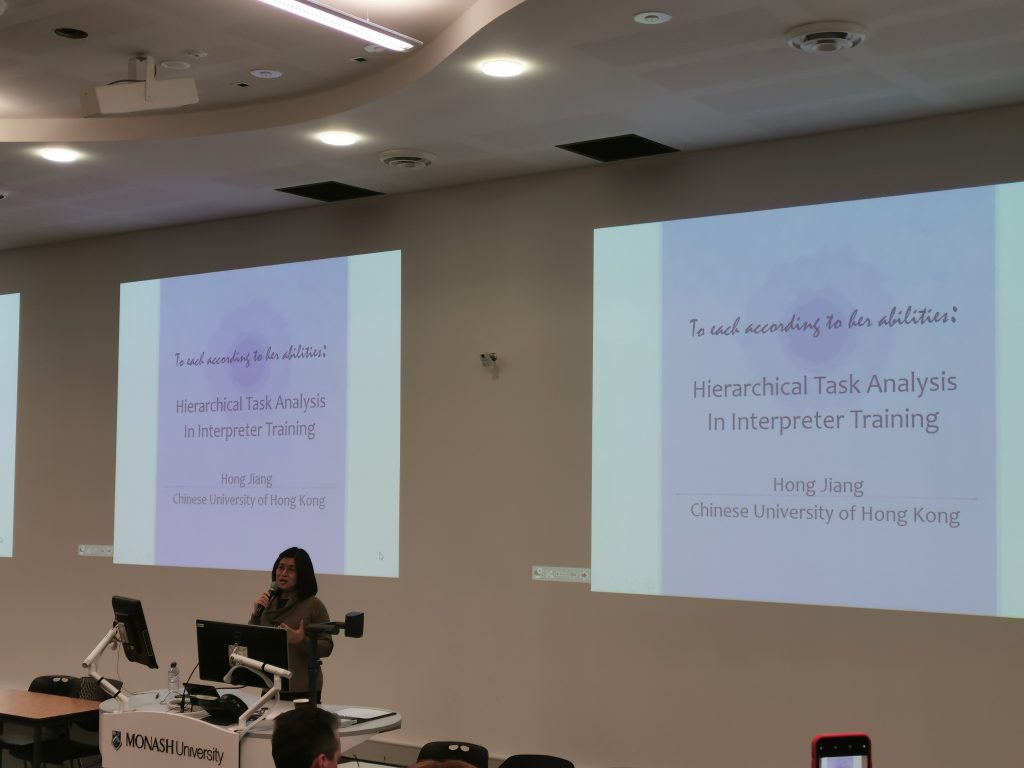
Hierarchical Task Analysis in Interpreter Training
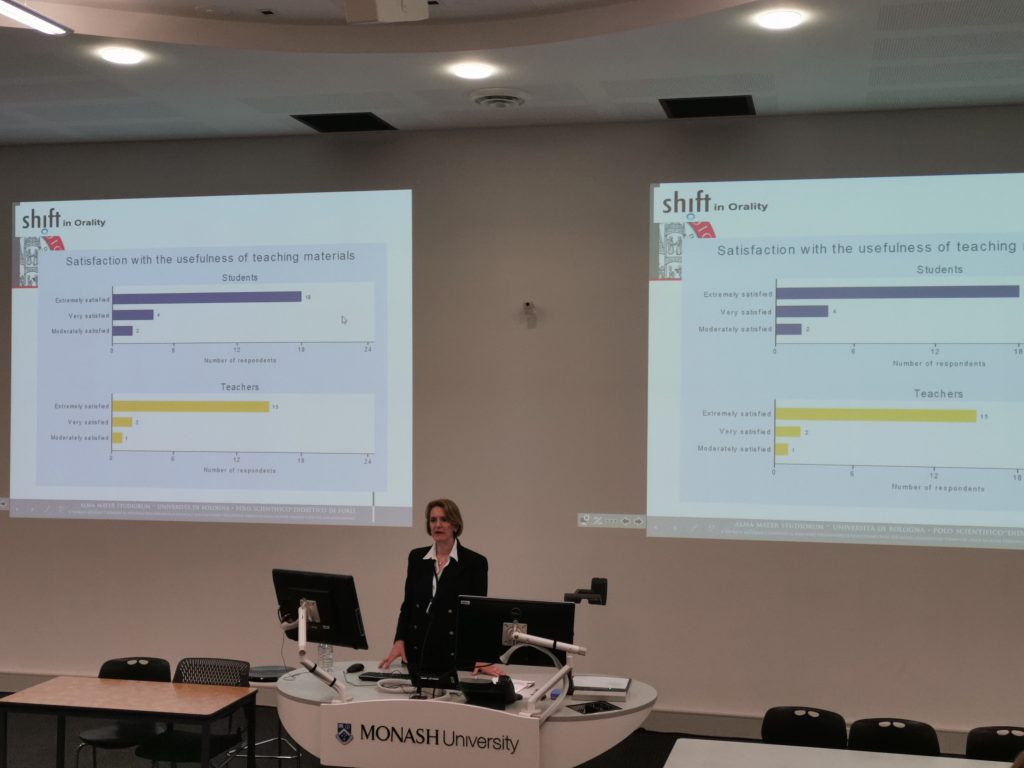
Remote Interpreting: Shaping the Interpreters of the Future and of Today
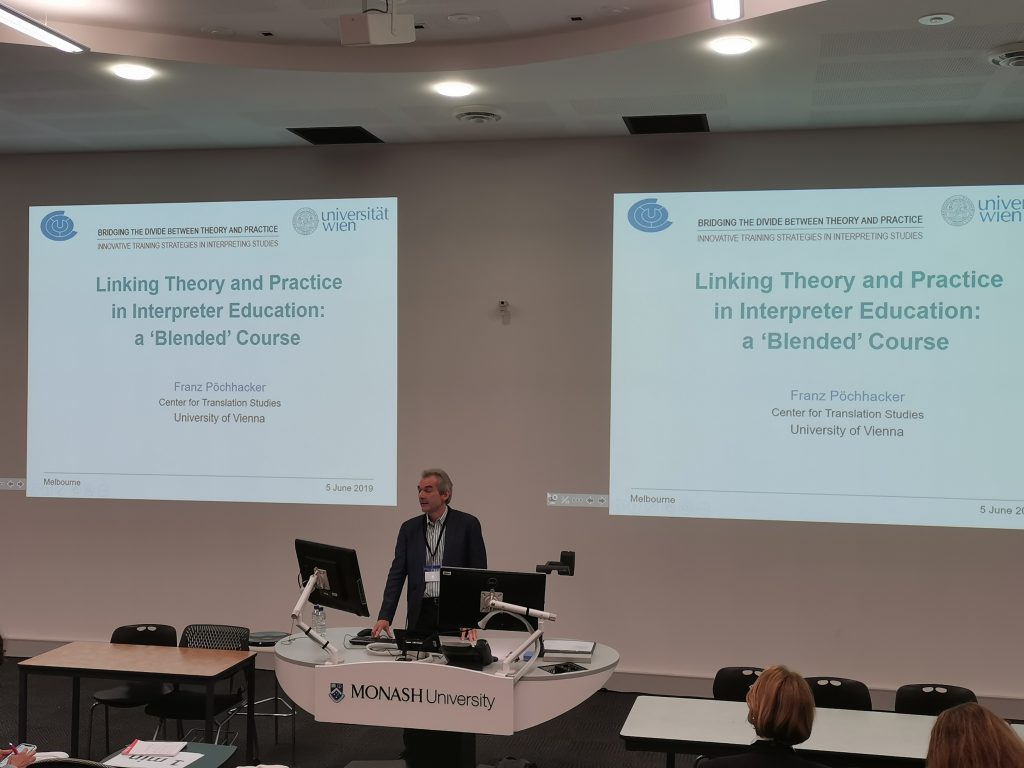
Linking Theory and Practice in Interpreter Education: a ‘Blended’ Course
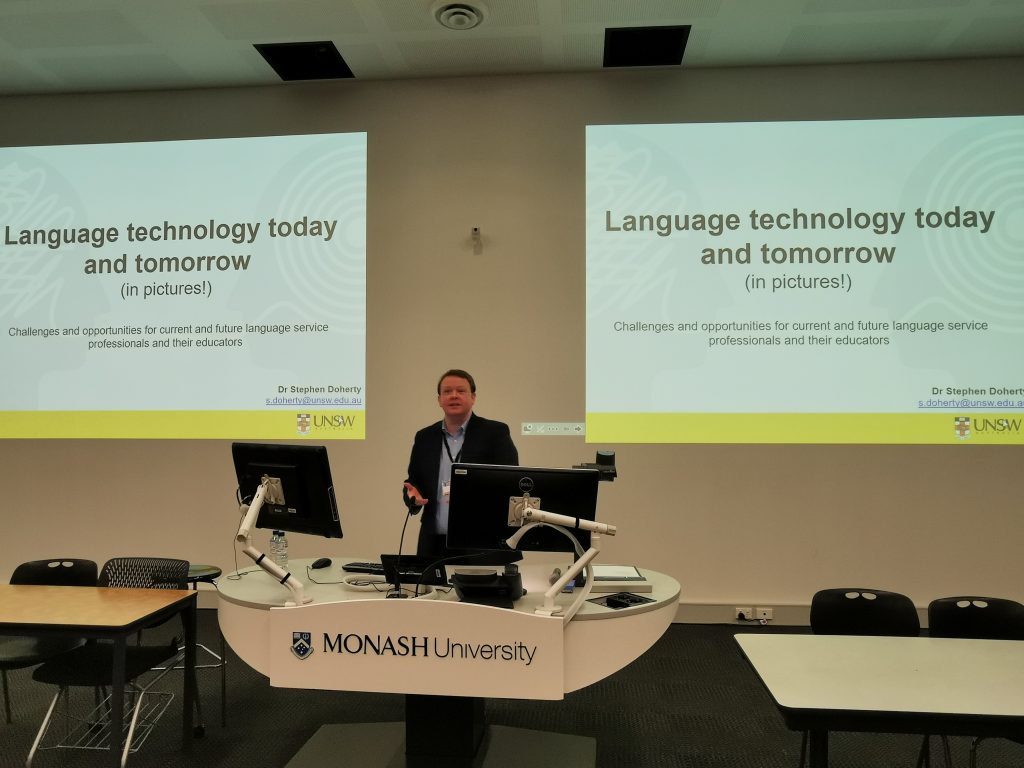
Keynote Speech: Language Technology Today and Tomorrow: Challenges and Opportunities for Current and Future Language Service Professionals and their Educators

Collaborative Practice in Interpreter Training: Joint Sessions with Medical and Social Work Students
Effectiveness of doctors working together with trained and professional interpreters.
Social work – policy/curriculum features addressed by collaborative learning (communicating with clients mediated by an interpreter)
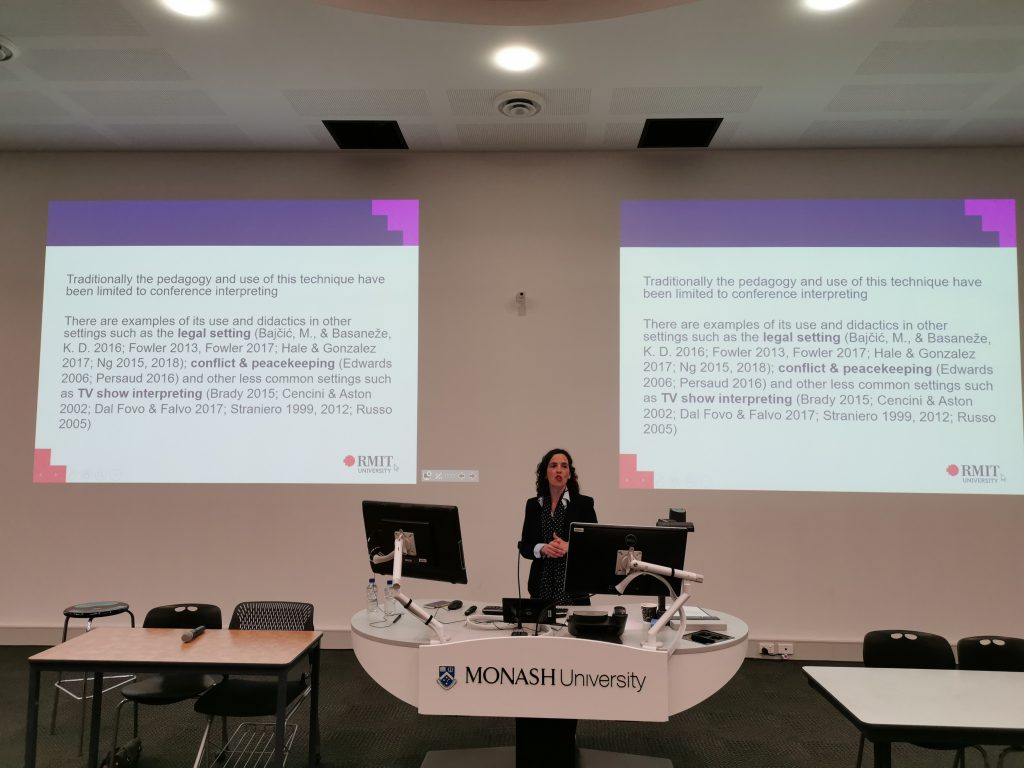
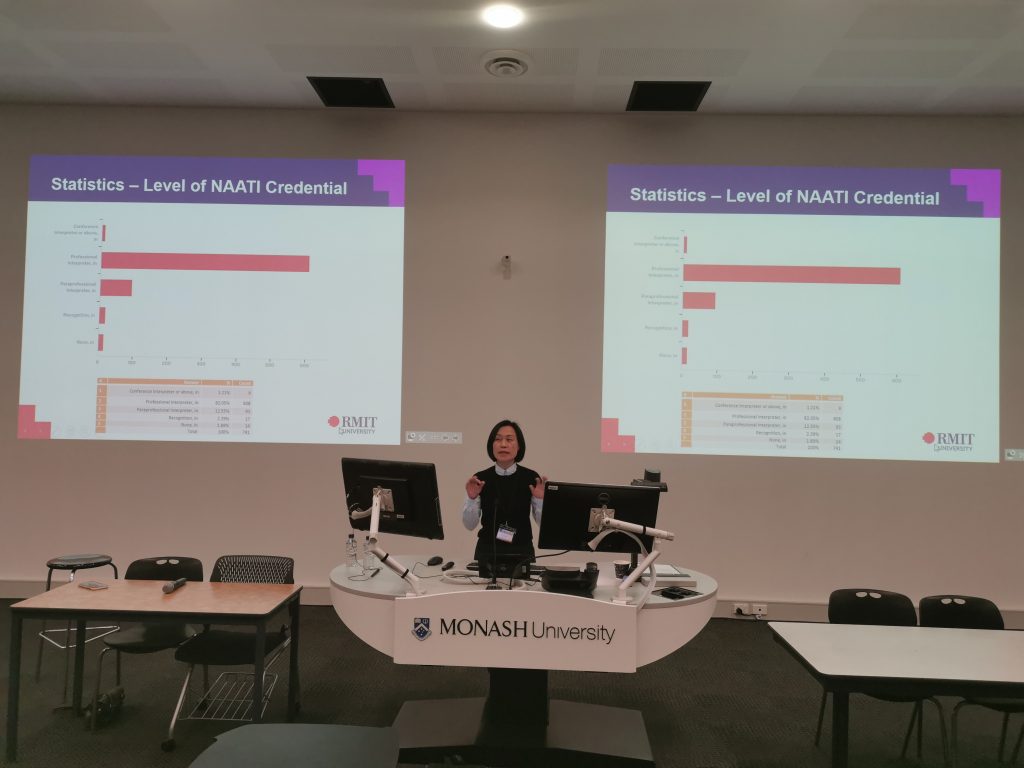
Teaching Chuchotage for Community Settings
It’s a vital technique in:
– mental heal settings
– pedagogical medical settings such as pain management courses
– police interviews that follow the cognitive interrogation style
In Australia, most of the police interviews are recorded. It will be very hard for professionals to transcript the recording for the court purpose if we are doing chuchotage interpreting.
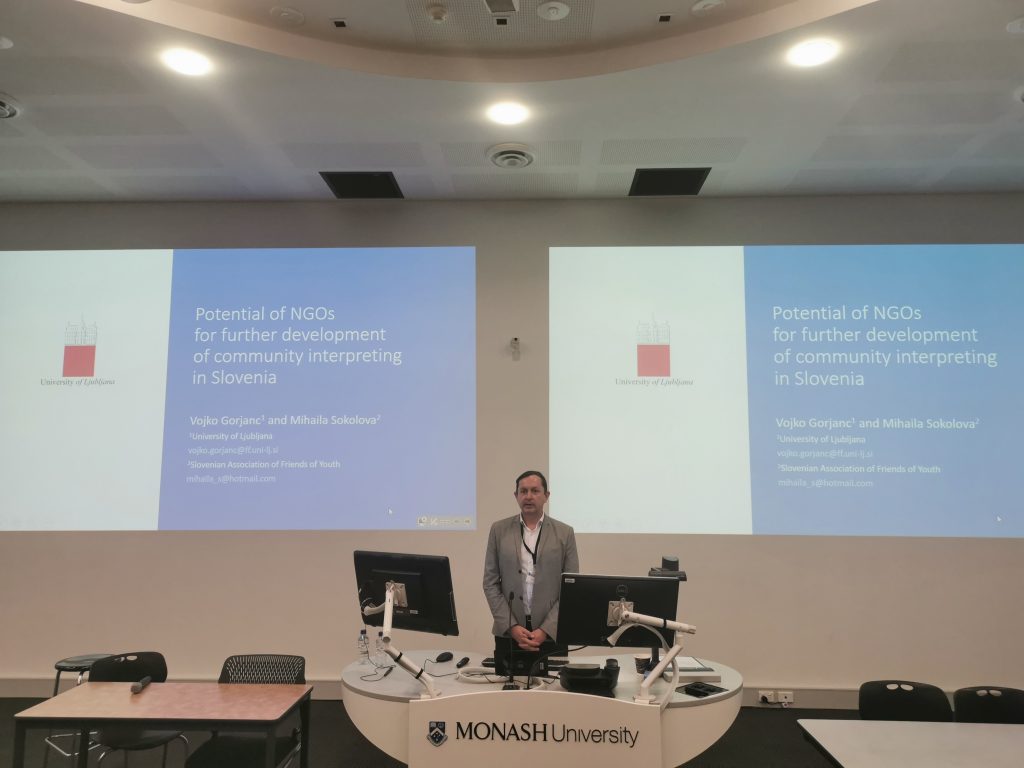
Potential of NGOs for Further Development of Community Interpreting in Slovenia
Edit: Bridging Translation
